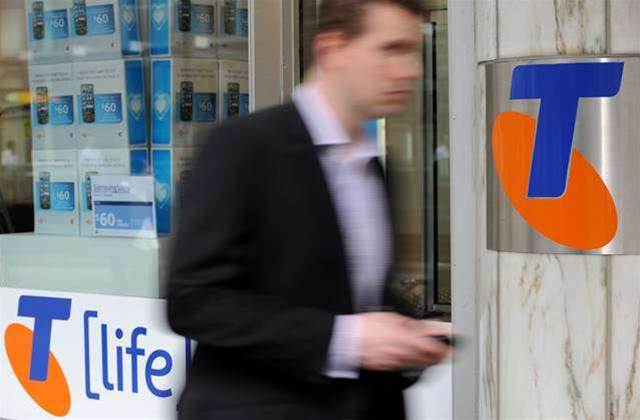This article has been reviewed according to Science X's editorial process and policies. Editors have highlighted the following attributes while ensuring the content's credibility:
fact-checked
trusted source
proofread
NBN, acquisitions blamed for tepid Telstra results
Telstra is continuing to struggle with sluggish business performance, according to its financial results for the half year to December 2015.
The carrier today reported a tepid 0.8 percent growth in net operating profit after tax of $2.1 billion for the half, in spite of a 9.1 percent jump in income to $14.2 billion compared to the corresponding half to December 2014.
Its EBITDA was also flat, growing 1.7 percent to $5.4 billion compared to $5.3 billion in the previous half. Total operating expenses grew 14.2 percent to reach 8.7 billion.
Declines in fixed line voice margins continued to put downward pressure on the telco's retail business. Growth in fixed broadband services of 121,000 during the period was only partially able to offset those losses, and EBITDA for its retail business declined 2.6 percent to $4.66 billion.
Telstra chief executive Andy Penn attributed the retail business’s poor performance to declines in average user revenue and costs associated with migrating customers to the NBN.
He said that the company’s mobile business performance was also flat.

Despite adding 235,000 new services during the period average revenues per user fell by 68 cents per customer to about $69.00.
Penn also conceded that the carrier’s investments in new businesses such as Ooyala, PacNet, and other health and software operations were having a negative impact on the company’s overall earnings performance. However, he added that the long-term strategy was to use them to offset declines including the loss of its wholesale business to NBN.
“We need to recognise that strategy reflects the fact that we’re going through a migration of being a provider of fixed line services to an access seeker with the NBN and that has a material impact on EBITDA and its really encouraging that our other businesses are adding value and we’re still growing EBITDA during that period,” Penn said.
“They are investments in growth in the future that are negatively affecting EBITDA in the aggregate at the moment but we’re confident that they’re going to be strong contributors going forward,” he added.
Telstra has also been investing heavily in the region, with a 56 percent stake in Chinese car sale website Autohome and plans to spend around $1.4 billion on a 40 percent stake in a joint venture with food maker San Miguel to build a new mobile network in the Philippines.
San Miguel holds a large share of the country’s 700Mhz spectrum assets.
However, Penn was today cautious in his commentary on the San Miguel joint venture, which has come under fire from rivals in the Philippines seeking regulatory intervention to force San Miguel to divest its spectrum assets.
“We’d like to be able to complete the project if we can but I’ve learnt from experience – I’ve done business in Asia for many, many years and in large complex transactions - they’re not done until they’re done and we’ve still got some things to work through. We’re committed to working through them and hopefully that will lead to a successful conclusion but I can’t guarantee that,” he said.
Domestically the carrier’s network and application services business was among its strongest performers growing income by 32.7 percent to $1.3 billion.
Income from Foxtel was weak with income from cable falling 26 percent and its distribution falling 3.3 percent, bringing its total earnings from the pay TV company to $95 million.
Foxtel from Telstra revenue grew 8.7 percent to reach $350 million however the company conceded that its focus on marketing Foxtel entertainment bundles and Telstra TV was having a negative impact on its IPTV business.
While new IPTV subscribers grew 18 percent to reach 92,000 during the period across T-Box and its new Telstra TV offering (which stood at 43,000 at the end of the half) its Foxtel on T-Box customers fell from 190,000 December 2014 to 132,000 at the end of December 2015.





















